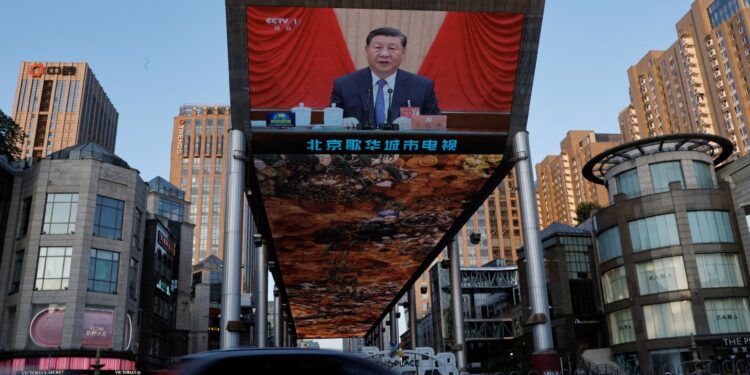While the world is welcoming signs of slowing inflation after a long period of record price increases, China appears to be fighting a completely different battle, as it faces the possibility of entering a period of chronic deflation, which will not only affect its economy, but may have major repercussions on the global economy as a whole, according to the specialized platform “Investing”.
Consumer and producer inflation decline
The platform notes that in August, China’s consumer inflation rate rose 0.6% year-on-year, the highest pace in half a year.
Despite this slight increase, most of the growth was driven by higher food prices due to bad summer weather, rather than a strong improvement in domestic demand.
When we strip out volatile items like food and fuel, core inflation slowed to 0.3% in August, down from 0.4% in July, its lowest level in three and a half years.
On the other hand, producer prices fell by 1.8% on an annual basis, compared to a decline of 0.8% in the previous month, indicating a decline in industrial economic activity.
deep-rooted shrinkage
The platform notes that Morgan Stanley analysts warn that continued deflation in China poses a real risk to the economy, noting that falling wages could be one of the biggest threats. This trend could lead to a series of negative effects, starting with a decline in consumer spending, to a decline in corporate revenues, and increasing unemployment rates.
To illustrate this, consider what happened in Japan in the 1990s. During that period, Japan experienced a long period of deflation known as the “lost decades,” which led to a prolonged economic stagnation after the period of rapid growth in the 1980s.
It is noteworthy that the unemployment rate among young people in China reached 18.8% last August, the highest level since the beginning of this year, while the country struggles to revive its deteriorating economy, according to what was reported by Agence France-Presse.
Beijing’s attempts to combat deflation
The Chinese government is trying hard to avoid the fate of Japan, according to the platform, as it pumped loans into the industrial sector in order to stimulate the economy. But these measures led to an increase in the production of goods without a corresponding increase in demand, which exacerbated the problem of deflation.
Morgan Stanley analysts explained that these efforts have only achieved a limited increase in job opportunities and income, and thus have not led to a sufficient stimulation of domestic spending.
Currently, China has set a target of 5% real GDP growth by 2024, but continued deflationary pressures could derail that goal.
Analysts suggest that the Chinese government may have to consider fiscal measures to support housing and social welfare programmes, which could boost the real estate sector and help boost national savings.
Implications of recession on the global economy
The platform points out that the repercussions of deflation in China are not limited to its borders, but also extend their effects to the global economy.
Morgan Stanley analysts revealed that China contributes to reducing core inflation in both the United States and the eurozone by about 0.1 percentage points, which is important especially in light of the trend of central banks in these regions towards cutting interest rates.
Despite some early signs of a change in policy tone in Beijing, analysts warn that a real shift in China’s economic and political direction could take some time, raising further concerns about the global economic challenges ahead.



